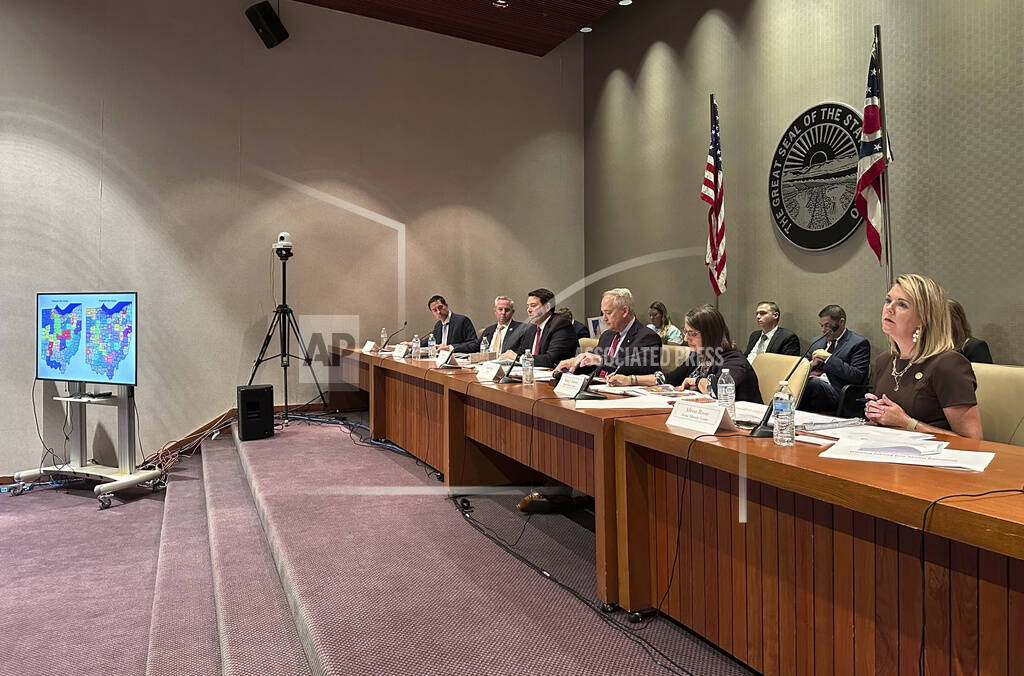
COLUMBUS, Ohio (AP) — Backers of a proposal to change Ohio’s troubled political mapmaking system will finally be able to start gathering signatures, after clearing a second round of state approvals Monday.
Citizens Not Politicians now has until July 3 to collect roughly 414,000 signatures required to put its constitutional amendment before voters in November 2024. Supporters are expected to fan out across the state beginning this week to try to make next fall’s statewide ballot.
Their proposal would replace the current Ohio Redistricting Commission, made up of three statewide officeholders and four state lawmakers, with an independent body selected directly by citizens. The new panel’s members would be diversified by party affiliation and geography.
The effort has experienced repeated delays. It began with two early rounds of objections to their petition language by Republican Attorney General Dave Yost before wording was initially certified. The Ohio Ballot Board then unanimously cleared the measure in October, only for organizers to discover they had made a single-digit typo in a date.
The mistake sent the process back to the drawing board: first, back through Yost’s office; then back through the ballot board, which again OK’d the measure as a single issue Monday.
The campaign said supporters of changing redistricting are eager to get started circulating petitions. Among them is Nadia Zaiem, of the Cleveland suburb of Westlake, who said she’s motivated to see a new way chosen for the drawing of Ohio’s legislative and congressional maps.
She said the current system allows politicians of both parties to “ignore the will of their constituents, knowing they will continue to be elected and re-elected, not because they have earned the support of a majority of voters, but because they have rigged the system in their favor.”
The effort follows the existing structure’s repeated failure to produce constitutional maps. During the protracted process for redrawing district boundaries to account for results of the 2020 Census, challenges filed in court resulted in two congressional maps and five sets of Statehouse maps being rejected as unconstitutionally gerrymandered.

